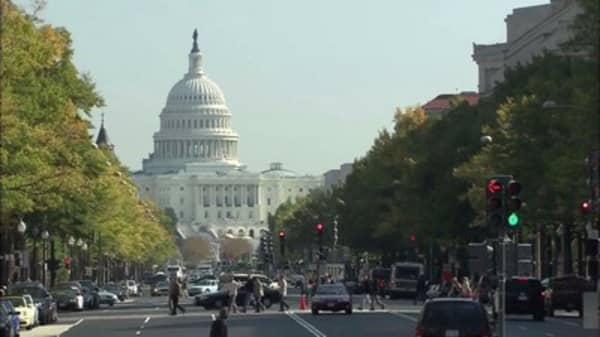Republicans can only afford to lose two Senate votes in order to pass this bill in the Senate, and move it through the House, by the September 30th deadline. Given the House's prior approval of a somewhat similar bill and the political stakes and the deadline, I can't see the more conservative House scuttling anything the Senate passes.
It all comes down to the political stakes for Republicans being able to keep their repeal and replace promise more than a concern for the policy implications. Apparently, a key difference between now and a few weeks ago is the enormous criticism Republican Senators faced from constituents during the summer recess over the failed Senate votes to repeal and replace Obamacare—as well as threats that some of them would be "primaried" for their failure to govern.
Most observers expect that Collins will be a no vote. So, that means Republicans cannot afford to lose another Senator. From a practical perspective this will come down to Shelly Moore Capito of West Virginia and Lisa Murkowski of Alaska, as they go so goes the bill.
Key elements of the Cassidy-Graham bill:
- It would repeal Obamacare's insurance subsidies and Medicaid expansion in just two twenty-seven months, on January 1, 2020.
- Then, states would have the option to continue a system of health insurance subsidies and a Medicaid expansion.
- If a state did create an alternate insurance program for those under Medicaid and in the individual health insurance market, they would apply for federal block grants to help them do so.
- The federal block grants would be funded from the original Obamacare funds but would likely vary significantly by state from they now get.
- The money for any future state insurance subsidies and Medicaid expansion would be significantly less that what states get today. In fact the Medicaid funds now being paid to the 31 states that have expanded Medicaid would be spread over all of the 50 states.
According to a report by the left leaning Center for Budget and Policy Priorities, the largest traditionally Democratic states that have been aggressive in expanding Medicaid and the individual market insurance subsidies—New York and California for example, would be big losers in the reallocation of the money while states that have done the least to expand insurance coverage, Alabama and Mississippi for example, would be the big winners.
Passage of this bill would create enormous market uncertainty:
- Health insurers would find themselves participating in Obamacare insurance exchange markets that would die on January 1, 2020. Just how willing would carriers be to remain committed to a program that would likely start to shrink at an accelerating rate? Rule number one in the insurance business is that you don't want to be the last guy left to turn the lights out on a dying program.
- Even though the payment of insurance subsidies would be uncertain from state to state, the requirement that insurers cover anyone applying for coverage no matter how sick they are would remain on the books.
- Which states would decide to build an alternative to Obamacare? Would small states like Montana or Rhode Island even try? Could states—particularly the ones that now rely upon the federal insurance exchange—even be able to build a plan by January 1, 2020—just over two years from now? How afraid would state legislatures and governors be to even engage in building something so complex as an Obamacare replacement given Obamacare's 2013 implementation fiasco and its ongoing issues related to its implementation and instability?
The Cassidy–Graham bill has the potential to make the health insurance markets better with the flexibility granted to the states to improve on a troubled Obamacare program. But there would literally be 51 jurisdictions that would have to act. The odds are simply that some could do it well, some not much better than Obamacare, some could have catastrophic failures, and some could be too afraid to tackle it in at least a comprehensive way.
States would not have the option of staying in Obamacare. It would be gone in just twenty-seven months.
Senate Republicans are now working hard to pass this bill in just two weeks not because it is an elegant policy solution but because it generally satisfies their ideological standards and satisfies a short-term political imperative to get something done—to show they can govern.
But shortly after the initial celebration of what they might claim to be a "great" legislative victory, they would face the daunting challenge of managing a walking dead program for two more years while getting the 50 states and D.C. to take action, in only those same two years, to replace the huge health insurance security vacuum they would have created.
A Pyrrhic victory at best.
Commentary by Robert Laszewski, the president of Health Policy and Strategy Associates. He has 20 years of experience in the insurance industry, serving as a chief operating officer for nine of those years, before beginning his Washington, D.C. policy- and market-consulting business.
For more insight from CNBC contributors, follow
@CNBCopinion
on Twitter.



